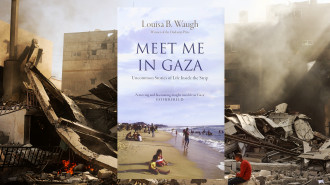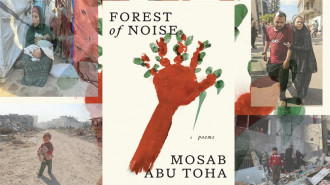‘Sometimes, memory is more honest than history itself’: Revisiting Lebanese novelist Elias Khoury's truths on Palestine
About 18 months ago, I had the chance to meet Elias Khoury, a well-known Lebanese novelist and public intellectual, recognised globally for his lifelong commitment to the Palestinian cause.
Khoury is celebrated for his engaging storytelling and distinctive viewpoint and is known for his advocacy of free speech and democratic principles.
His writing frequently addresses political issues and core aspects of human nature and so far, Khoury has authored 15 novels, most of which centre on the Palestinian struggle.
When Israel's violence in Gaza escalated, particularly after October 7, I turned to Khoury’s novels for detailed insight and I was surprised to find that his books provided more perspective than many history texts.
Through his storytelling, Khoury not only uncovers the events and details of what he calls the "continuous Nakba," but also clearly portrays the suffering and resilience of an entire people.
Humanising the Palestinian cause
This reality is illustrated in one of Khoury’s most famous works, his 1998 novel Bab al-Shams (Gate of the Sun).
This novel explores the suffering of Palestinians and captures the crisis from the war of 1948 to the present.
In the story, the narrator, Khalil, recounts the events of the Nakba to his spiritual mentor, Yunes, who lies in a coma in a makeshift hospital outside Beirut. Khalil hopes that reliving these memories will somehow revive Yunes.
As Khalil narrates in the quiet hospice, his stories flow endlessly, eventually focusing on the central theme of the novel: the love story between Yunes and a woman named Nabilah.
What stands out in this novel is Khoury’s dedication to preserving the stories he collected during his visits to Palestinian refugee camps in Lebanon.
Throughout his life, he made it his mission to keep these stories alive in the minds of his readers.
“Gathering the stories from the camps took a lot of time because it was difficult,” Khoury tells The New Arab.
“People didn’t want to talk at first, but with time, they warmed up and opened up to me, and I was able to do the job.”
Another key aspect of the novel is Khoury’s attempt to humanise the Palestinian cause, giving Palestinians a way to confront and release the painful memories of their expulsion from their homeland.
His work also serves as a reminder to the world of the Palestinian struggle, which many have either forgotten or chosen to ignore.
By creating vivid characters and using powerful imagery, Khoury helps readers around the world view Palestinians with greater sympathy and respect, while avoiding pity.
In Bab al-Shams, for example, we experience the Palestinian story through the wisdom of Um Hassan, the troubled presence of Shams, and Adnan’s despair in the dark cells of Dar Al-Ajazeh, an elderly home.
These detailed portrayals provide readers with a deep emotional understanding of Palestinian reality, which, in itself, is a form of resistance according to Khoury.
“I didn’t replicate their stories as I collected them," Khoury says about his characters. "There was a lot of dramatisation in the narration, but not in the facts.”
Resisting Palestinian erasure
Khoury’s works also fight against the erasure of Palestine and its people, which is happening today under the Israeli occupation. Moreover, his books reveal crimes that have been hidden or forgotten.
In his trilogy Children of the Ghetto, Khoury explores the forced expulsion of Palestinians from Lydda (now Lod) in 1948 and the confinement of those who remained in a barbed-wire-enclosed ghetto.
The suffering of these Palestinians parallels that of Jews in the Nazi Warsaw ghetto, illustrating how history can repeat itself.
One striking scene in the first book of the trilogy shows Palestinian residents asking for water, only to receive a cruel reply from an Israeli soldier: “The Nazis did not give us water.”
The trilogy also uncovers horrific acts, such as Palestinians being forced to dig their graves before execution, family separations, and the rape of women — crimes that we are witnessing today as Israel's brutal war on Gaza continues.
“My goal from the start was to reveal the truth about what Palestinians endured, nothing more, nothing less. The truth alone is enough,” Khoury explains.
The author also points out that Israelis have not only hidden these atrocities from the world but also from their own people, trying to erase them from memory.
His trilogy faced criticism from pro-Palestine Israeli acquaintances who initially believed that ghettos were a solely Jewish experience. However, after checking historical facts, they admitted that a Palestinian ghetto did exist in Lydda.
Khoury reflects, “Sometimes, memory is more honest than history itself.”
A distinguished writing style
Khoury’s protagonists often tell their stories through vivid streams of consciousness, including long flashbacks and extended passages.
A key feature of his writing style is the use of multiple narrators, which adds depth and presents various viewpoints in his novels.
One might even think that he portrays himself as a character lost in his memories, much like the characters in Bab al-Shams and Children of the Ghetto.
When asked if these characters might be alter-egos of himself, Khoury rejected the notion, saying, “No, they are not.”
Despite this rejection, one thing is certain: Khoury's unique writing style makes him stand out and by no surprise, has earned him widespread acclaim for almost all of his novels.
To date, Khoury has received the State of Palestine Prize in 2007 and the Al Owais Award for fiction writing in the same year.
In 2011, he was awarded the Spanish Legion of Honor, Commander, by King Juan Carlos of Spain.
Interestingly, Bab al-Shams even inspired Palestinians in the West Bank to create their own Bab al-Shams encampment — a powerful example of art reflecting life.
How Khoury’s work is more relevant today than ever before
Just as cartoonist Joe Sacco’s comics journalism on Palestine and author Ilan Pappé’s writings on the ethnic cleansing of Palestinians and Zionism are crucial for understanding the current situation, Khoury’s literature is equally vital.
His work documents Israeli war crimes against Palestinians from the Nakba onward, highlighting the resilience of the Palestinian people and their ability to endure severe suffering.
Amid the devastation of Israel’s war, Palestinian tailors are using bicycle wheels to power their sewing machines, and educators are setting up makeshift schools in tents to ensure that children continue learning.
“After the Gaza war, the world is no longer the same,” says Khoury.
“I believe the Israeli war on Gaza has created a new path for the resistance movement. That’s why Gaza represents the heart of the resistance and the spirit of the people.”
Maysaa Ajjan is a Lebanon-based journalist who holds a Masters in Multimedia Journalism from the Lebanese American University. She covers tech, culture and gender.
Follow her on X: @MaysaaAjjan
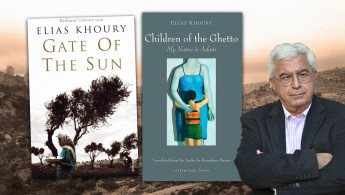
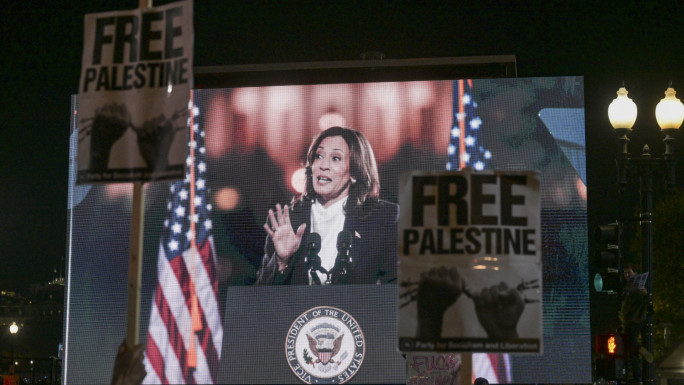

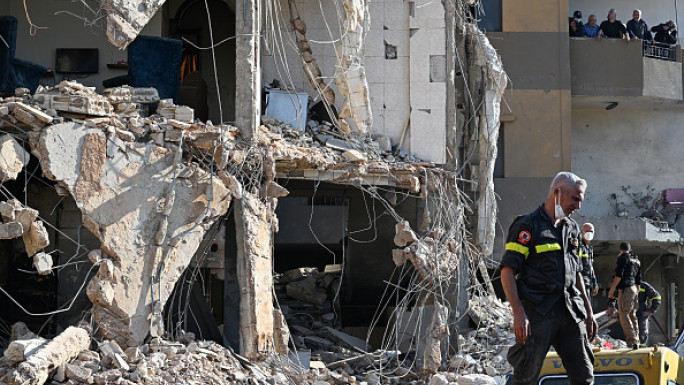
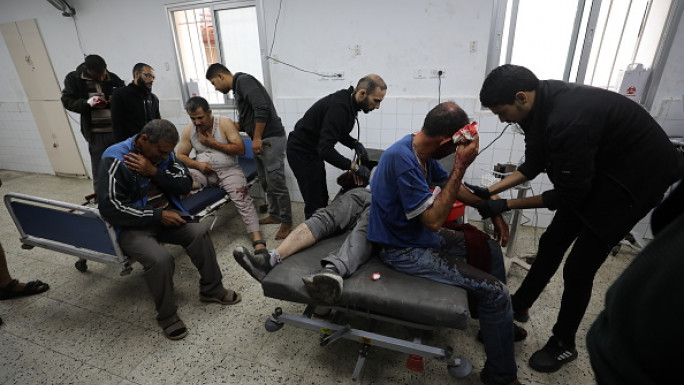
 Follow the Middle East's top stories in English at The New Arab on Google News
Follow the Middle East's top stories in English at The New Arab on Google News
